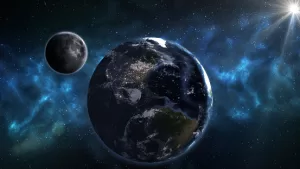
If you’re curious about becoming a Freemason, understanding the essential criteria is crucial. Freemasonry has a presence in numerous towns and villages worldwide, where Masons gather to share friendship and fraternity. Contrary to misconceptions, Freemasonry’s establishment in a particular area is not the result of missionary efforts but rather a voluntary initiative by a group of Masons seeking to extend camaraderie to the community.
Freemasonry, the doctrines, and rituals of the exclusively male fraternity known as Free and Accepted Masons, represent the largest global secret society. This oath-bound organization is often dedicated to fellowship, moral development, and mutual support while keeping at least some of its rituals, traditions, or activities confidential from the general public (note that secret societies may not necessarily conceal their membership or existence). The expansion of the British Empire played a significant role in the dissemination of Freemasonry, and its strongest following persists in the British Isles and other regions initially under the empire’s influence. Estimates of Freemasonry’s global membership in the early 21st century varied, ranging from approximately two million to over six million.
Freemasonry has its origins in the guilds of stonemasons and cathedral builders during the Middle Ages. As the construction of cathedrals declined, certain lodges of operative (working) masons began admitting honorary members to counteract diminishing membership. From these lodges emerged modern symbolic or speculative Freemasonry. Particularly in the 17th and 18th centuries, this form adopted the rituals and regalia of ancient religious orders and chivalric brotherhoods. The establishment of the first Grand Lodge, an association of lodges, took place in England in 1717.
Becoming a Freemason involves fulfilling a few key requirements, which are consistent across various jurisdictions:
- Being a man, freeborn, of good repute, and well-recommended:
- Masonry originated as a male organization, and while there are women’s and mixed-gender groups with similar rituals, Freemasonry primarily remains a male institution. The “freeborn” stipulation traces back to early Masonic days, ensuring independence from indentured service.
- A belief in a Supreme Being:
- Freemasonry does not prescribe a specific manner of worship or dictate to whom prayers should be directed. The term “Great Architect of the Universe” allows for inclusive prayer, accommodating diverse religious beliefs without defining them.
- Of lawful age:
- Freemasonry requires candidates to be of legal age, typically 18 in most US jurisdictions. The age may vary in different regions, with some jurisdictions setting it at 19 or 21. This criterion aims to ensure a level of maturity necessary to comprehend Masonic concepts.
- Come to Freemasonry of their “own free will and accord”:
- Freemasonry operates on a voluntary basis. Unlike other organizations, there are no recruitment campaigns or incentives for bringing in new members. Prospective members are expected to express interest and seek membership based on their positive impressions of the organization.
Understanding these requirements dispels common misconceptions about Freemasonry. It is not an organization one can join by merely reading a book or browsing the internet; instead, it involves a personal and initiatic experience. Freemasonry’s emphasis on personal choice and voluntariness underscores its unique character in the realm of fraternal organizations.





